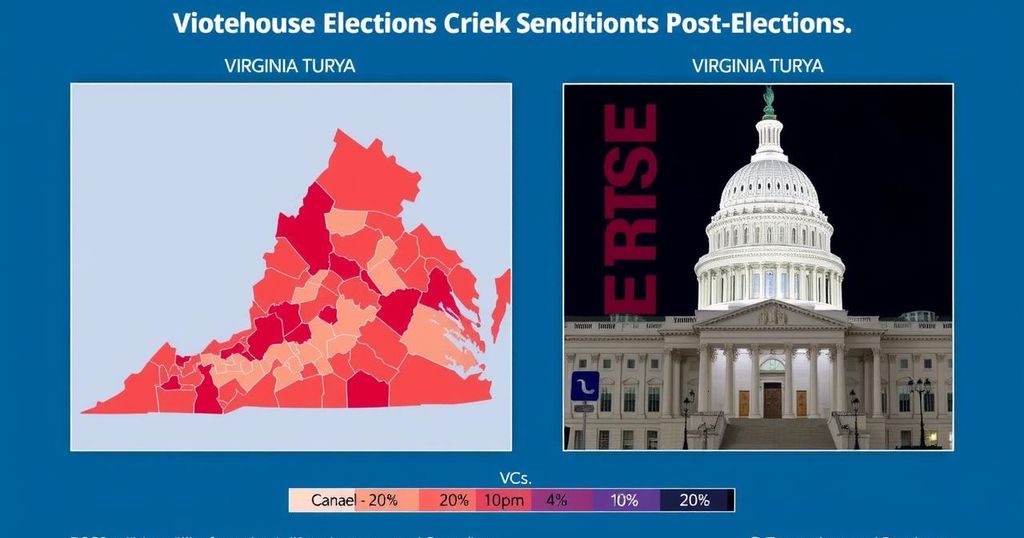Three special elections in Virginia are set to determine party control of the Senate and House of Delegates. With tight margins, Democrats aim to defend their majority while Republicans seek to claim seats amid changing voter sentiments. Key issues include abortion rights and economic concerns, impacting campaign strategies and voter engagement in a politically dynamic environment.
The upcoming special elections in Virginia will play a pivotal role in determining the balance of power within the state legislature, coinciding with a significant moment for voters post-Trump’s election. Three key races are set for Tuesday, with campaign themes reflecting party lines, parent rights, and economic concerns. Party leadership will be directly impacted, as Democrats aim to maintain their slim legislative majority while Republicans seek to gain control in the final year of Governor Glenn Youngkin’s term.
The current political landscape in Virginia features a narrow Democratic majority in the Senate and House of Delegates, following the election of Democrats to U.S. House positions. In Loudoun County, Tumay Harding, a Republican, and Del. Kannan Srinivasan, a Democrat, are competing for a Senate seat, whilst Democratic candidate JJ Singh and Republican Ram Venkatachalam vie for the accompanying House seat.
The races in Goochland County also feature a head-to-head battle between Republican Luther Cifers and Democrat Jack Trammell to fill the vacancy left by U.S. Rep. John McGuire. Both Trammell and Singh emphasize their focus on abortion rights in their campaigns, highlighting the Democratic Party’s aim to reinforce such rights constitutionally in response to changing voter sentiments.
Conversely, Harding and Venkatachalam have positioned their campaigns around traditional conservative themes, criticizing current party dynamics and outlining their perspectives on economic issues and community safety. Cifers, drawing from his local business experience, advocates for a more structured and practical approach to governance, emphasizing constitutional respect and voter interests over party affiliation.
Trammell argues for a competitive electoral environment in traditionally Republican areas, noting the demographic changes impacting political dynamics. The outcomes of these elections will not only influence legislative control but also provide insights into the electorate’s response following the previous federal elections.
Virginia’s statehouse, comprising the Senate and House of Delegates, holds significant importance in shaping local governance and policy. Following President-elect Donald Trump’s win, Democrats are reassessing their electoral strategies and community connection, while Republicans are presented with an opportunity to gain legislative power. With a narrow Democratic majority impacted by recent vacancies due to congressional elections, these special elections are instrumental in defining party control and legislative direction, especially as Democrats aim to secure abortion rights within the state amidst shifting voter attitudes.
In conclusion, the special elections in Virginia represent a critical moment for the state’s political landscape, reflecting broader national sentiments post-Trump’s election. With both parties actively mobilizing to secure control of the state legislature, the results will indicate voter priorities and potential shifts in political allegiance as issues such as abortion rights, economic challenges, and community safety are thrust into the spotlight. The election outcomes will set the stage for future legislative endeavors under Governor Youngkin’s administration.
Original Source: apnews.com






